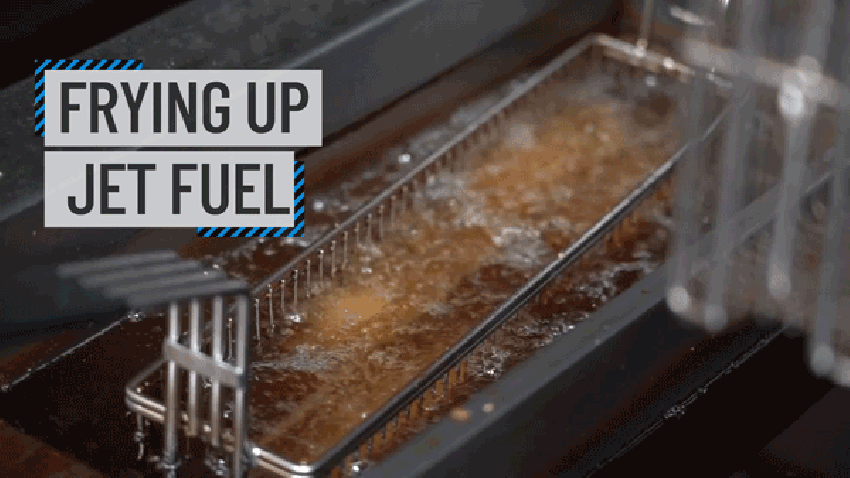Every day at Dallas-Fort Worth International Airport, tens of thousands of travelers pass through terminals buzzing with energy.
Just out of their sight, hundreds of fryers are bubbling with a more sustainable solution to traditional jet fuel: cooking oil.
Watch NBC 5 free wherever you are
“We generate a lot of waste, a lot of undesirable products that have to go somewhere,” said Robert Horton, DFW’s Vice President of Environmental Affairs. “What we're trying to do is find a way to remove that without creating a detrimental impact.”
The airport collects nearly 32,000 pounds of cooking oil each month and stores it in tanks until it can be hauled off and refined into sustainable aviation fuel, also known as SAF.
Get top local stories in DFW delivered to you every morning with NBC DFW's News Headlines newsletter.
The program started out in two of DFW’s terminals in 2019 and quickly expanded to more than 200 restaurants in five terminals.
“Mind-blowing, right?” said concessionaire Chalmer McWilliams. “Who would have ever expected something like this?"

Local
The latest news from around North Texas.
McWilliams landed at DFW airport in the mid-1990s and runs three McDonald’s locations. Once he heard about the recycling program, he was excited to turn the oil for his french fries into fuel for the planes, like the ones landing just a few yards away from his fryers.
“It's wild, isn't it?” McWilliams said.
After restaurants collect the oil, crews haul it to larger storage tanks around the airport. The people behind the program estimate every gallon of oil creates around 0.8 gallons of SAF.
“The team has worked really, really hard with making sure that we have the right partners in place, the right processes in place, so that it's easy for them to participate,” explained Ken Buchanan, EVP of Customer Experience and Revenue Management at DFW.
The recycling program is part of DFW’s push to reach 100% net zero emissions by 2030. The airport partners with a company called Neste to convert the cooking oil into SAF. Neste hauls it away to be processed and supplies the renewable fuel to several airlines, including American, at airports around the U.S. Neste estimates SAF accounts for about 1% of jet fuel consumption right now, but they believe airlines are open to using more.
“They've started to realize that aviation and airlines play a big role in the emissions globally,” said Pratik Chandhoke. He says SAF can reduce emissions by about 80% from production to in-flight fuel burning. It’s clear and loses the signature scent from the fryers.
“It does not smell like french fries at all,” Chandhoke laughed. “If you if you look at the liquid itself, it's clear as water and there's no odor to it.”
Just a few months ago, Neste and DFW Airport marked a milestone: They delivered a truck full of SAF to the airport’s private terminal.
“That was a pilot test to kind of see if it works, and it worked pretty well,” said Chandhoke.
For now, the cost of SAF makes it a harder sell. Horton estimates it runs two to six times more expensive than traditional jet fuel, but Chandhoke says prices are coming down.
Leaders at DFW hope they’ll be able to find a way to make the sustainable fuel supply permanent.
“We already believe we have the infrastructure setup. We have fuel distribution systems,” says Horton. “If we can get continuous supply at the right economic rates, we have a drop-in solution that can be applied right here.”
The Dallas Morning News spoke to airline leaders about how they’re using SAF. Read more here.



